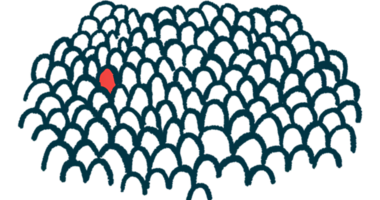How my dad has supported me since my Parkinson’s diagnosis
We may not live near each other, but he's always there for me

Last month, in honor of Mother’s Day, I shared some lessons I learned from my mom that have helped me through my journey with Parkinson’s disease. This month, I wanted to share a bit about my dad and the journey we both went through when I was diagnosed.
First of all, it’s pretty unexpected to find out that your child has Parkinson’s disease. Since the majority of Parkinson’s patients are diagnosed in their 60s or 70s, oftentimes their parents are already gone. My dad turned 70 — a more typical age for a Parkinson’s disease diagnosis — about four months before I was diagnosed at the age of 36. This was back in September 2013, and as traumatic as that day was for me and my husband, one of the worst parts was telling my dad. I knew he’d be upset, not with me, but over the fact that I would have to face so many unknowns.
I’ve always been a bit of a daddy’s girl. I started my first hours of life in his arms. My mother had a medical emergency while giving birth to me, and the family story goes that he wouldn’t set me down until he knew my mom was OK. As a little kid, I liked to “help” him around the house, especially if tools were involved. He was a middle school teacher, and I would even help him grade papers by bringing my crayon bucket to his desk and “working” alongside him.
At the time I was diagnosed, he lived in Florida, and I was in Boston. I had been to visit right around my dad’s 70th birthday, and I was very symptomatic. My stepmother is a nurse, and she later told me she knew there had to be something neurological going on with me. My age was unusual, but I had almost all of the telltale motor symptoms of Parkinson’s disease. I was still in a bit of denial, and blamed my slowness and tremor on stress, lack of sleep, and too much travel — anything but a problem I couldn’t fix.
All that summer, they worried, and I worried, and we tried to put it out of our minds until I could get in to see the neurologist. But nothing could have prepared us for the diagnosis. My dad and stepmom knew I was meeting with a neurologist that day, and I promised to call when I had something to report. When my husband and I got to the car, my mind was reeling, but I knew I had to call my dad.
I don’t remember what I said. I do remember it was the first time I cried since the doctor had told me it was Parkinson’s disease. The last thing anyone wants to do is to disappoint your loved ones or cause them worry and angst. And I knew my diagnosis would be a huge burden he would carry.
Since that day, we have all learned a lot and been through a lot with Parkinson’s disease, and while we don’t live near each other, Dad has been there every step of the way. When I had my deep brain stimulation surgery, he flew up and stayed with us — I think because he needed to be there as much for himself as for my husband and me. I understood. If someone is drilling holes into your baby girl’s brain, you want to be nearby!
He still worries about me daily, but we’ve all learned to take it as it comes, one day at a time. I’m grateful to have a husband who can help take care of me, and that I don’t have to burden my parents with my physical care as they age. I know worry is a burden, but the burden gets a lot lighter when it’s shared, and I’m thankful every day for my family standing beside me to share all the joys and challenges.
Note: Parkinson’s News Today is strictly a news and information website about the disease. It does not provide medical advice, diagnosis, or treatment. This content is not intended to be a substitute for professional medical advice, diagnosis, or treatment. Always seek the advice of your physician or another qualified health provider with any questions you may have regarding a medical condition. Never disregard professional medical advice or delay in seeking it because of something you have read on this website. The opinions expressed in this column are not those of Parkinson’s News Today or its parent company, Bionews, and are intended to spark discussion about issues pertaining to Parkinson’s disease.








Alan REGGANI
I had a DBS surgery with Medtronic 6 months ago & I barely walk ?
Need advice
Thx !
Robert Valenti
Lovely story.
Happy for you that your family supported you during all of the difficult times.
Wishing you the best.
Stephen
Beautifully written and truly inspiring Mollie.
Stephen Jackson
Inspiring story Mollie.